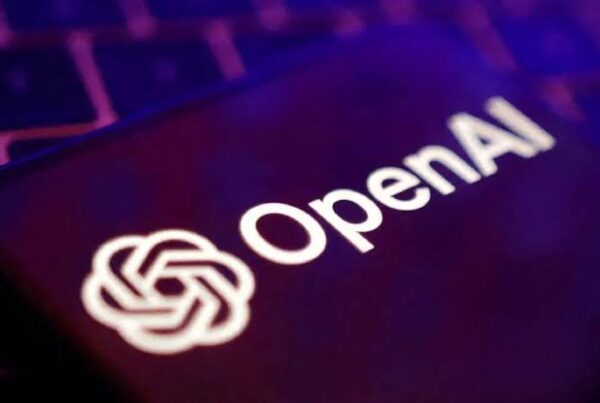Platform X, formerly known as Twitter, has imposed strict policies on access from ChatBOTs and third-party applications. This change came after Elon Musk’s takeover and his decision to treat public data on X as a highly valuable strategic asset. As a result, chatbots such as ChatGPT can no longer pull content directly from the platform without using a paid official API.
This move has triggered wide debate among developers, researchers, and tech companies that rely heavily on X’s data. Many argue that the policy is aimed at monetizing data and controlling information flow. On the other hand, the restrictions raise concerns about transparency, open information, and the future of research that depends on public online conversations.
The Transformation of Access Policies on Platform X
The once-open access that Twitter allowed has been completely reshaped after its rebranding into X. Free API access previously used by academics and small developers has been removed. Instead, a costly subscription model has been introduced.
For some, this is seen as a way to secure new revenue streams for the company. However, the impact is not limited to finances. The move fundamentally alters the digital ecosystem on a global scale. App developers, analytics firms, and investigative journalists who once relied on X’s data now face steep costs and technical roadblocks.
Structural API Changes and Subscription Models
Under Twitter, API v1.1 and v2 provided developers with access to public data within certain limits. Today, the Basic package offers just 10,000 requests per month, which is insufficient for large-scale analytics. Pro and Enterprise packages allow greater access but can cost tens or even hundreds of thousands of dollars monthly.
This means only large institutions can afford full access. Independent researchers and startups are being pushed aside, with many abandoning X data altogether. This situation raises serious questions about equal access to public data in the digital age.
Implications of Strict Rate Limiting and Authentication
The restrictions go beyond price. X enforces tight rate limiting, which sharply caps the number of requests per minute. Even apps with official access must comply. OAuth 2.0 authentication is mandatory, ensuring only verified apps can connect to the API.
Additional protections such as bot detection and Cloudflare make scraping nearly impossible. ChatBOTs that try to parse X’s web content directly are automatically blocked. This proves that X’s strategy is not only about monetization but also about complete control of data distribution.
Elon Musk’s Business and Strategic Motives
The new policy cannot be separated from Elon Musk’s vision. From the start, Musk declared that X must become a “super app” with full control over user data. Public conversations are seen as a commercial goldmine, useful for AI training and precision advertising.
At the same time, Musk has been highly critical of spam bots that plagued Twitter. With strict API rules, he aims to reduce automated accounts used for political propaganda, scams, and misinformation.
Monetizing Data as a New Revenue Stream
Since the acquisition, Musk has faced heavy pressure to boost X’s revenue. Advertising alone has not been sufficient, especially after many big advertisers pulled out due to controversies around moderation policies. Turning API access into a premium commodity became an alternative solution.
This approach is not unique. Companies like Meta and Google also guard their data tightly. However, many argue that public online conversations should remain affordable for wider access, given their importance for research and society.
Controlling Information and the Digital Ecosystem
Beyond revenue, strategic motives are evident. Restricting access prevents AI competitors from freely using X’s data. Real-time conversational data is extremely valuable for training large language models. If companies like OpenAI or Anthropic could access it freely, X would lose its edge.
With strict control, Musk ensures only those who pay a premium can benefit. This strategy strengthens X’s position as the owner of one of the world’s most valuable digital assets.
Global Impact on ChatBOTs and Research
The restrictions have profound effects on chatbots such as ChatGPT. Without official API access, ChatGPT cannot display tweet content from a link. This reduces the flexibility of AI tools in providing real-time social media insights.
For researchers, the impact is even greater. Academic studies on public opinion, disinformation, and political movements that once relied on Twitter data are now hindered. Researchers must turn to alternative platforms such as Reddit, Mastodon, or open forums.
Barriers for Small Developers and Startups
Startups building products around social data analytics now face prohibitive costs. Innovation slows when only large corporations can afford entry. The once vibrant third-party app ecosystem on Twitter risks fading away.
For example, many small analytic tools that once helped journalists map public conversations have shut down. Without significant funding, these services cannot survive under the new API model.
Consequences for Public Transparency and Social Research
The policy also raises transparency concerns. Public conversations on X reflect digital society’s pulse. If access is limited to a few paying players, information bias may increase.
Social scientists stress that open access to public data is vital for understanding democratic dynamics, communication patterns, and misinformation flows. With restrictions, independent research becomes far more difficult to conduct.
Ultimately, the restrictions on ChatBOTs in Platform X signal a major shift in the digital landscape. What was once treated as public space is now turned into a commercial asset under tight control. On one hand, this policy strengthens X’s business strategy and protects against abuse by bots. On the other, it limits openness and narrows the scope for independent research.
Debates over whether this move is necessary or excessive will continue. What is clear is that the policy marks a new era where digital data is no longer freely public but instead a commodity sold at high prices. To follow more insights into digital ecosystem changes and tech policy, readers can explore related in-depth reports on Olam News.






